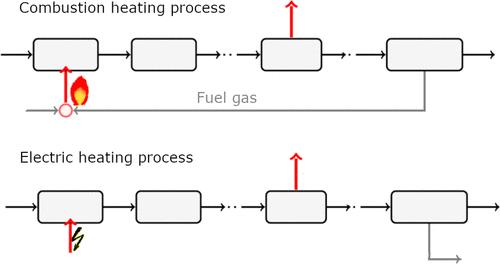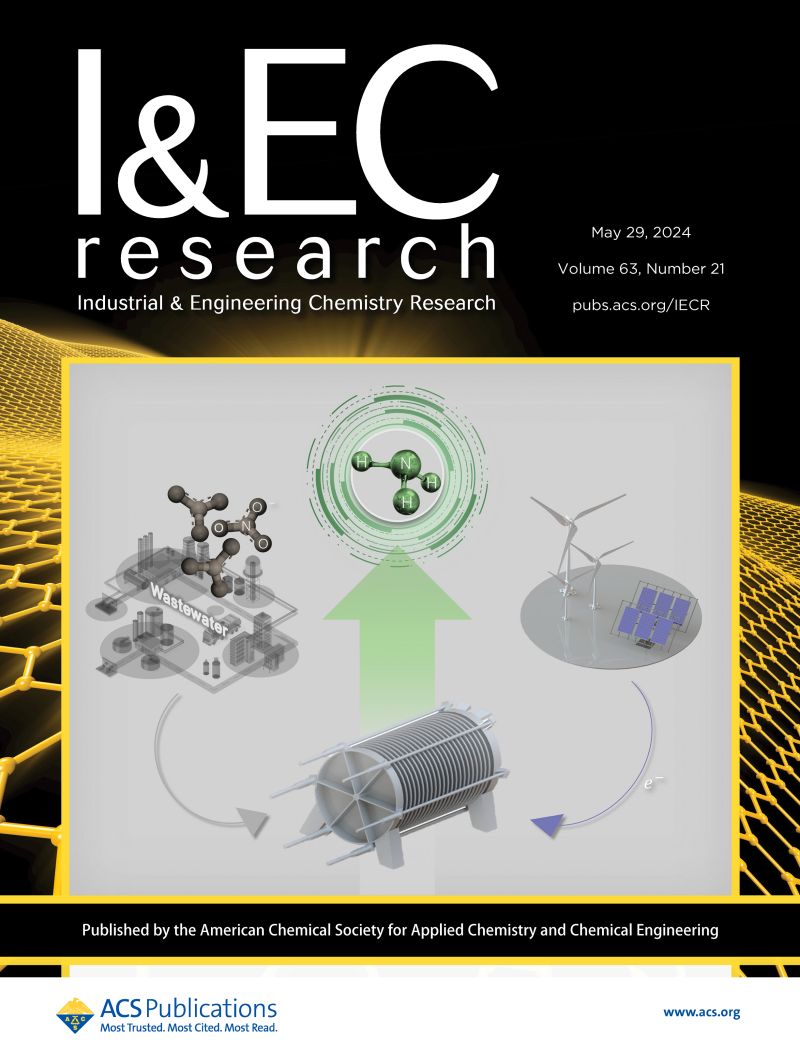探讨电加热对综合化工过程设计、动力学和操作的影响
IF 3.9
3区 工程技术
Q2 ENGINEERING, CHEMICAL
引用次数: 0
摘要
我们研究了在包括高温反应/分离/循环序列的综合过程中从燃烧加热转向电加热的影响,其中支持反应的热量大部分或全部由燃烧副产物/燃料气体提供。定义了一个规范的流程结构。结果表明,由于下游单元(通过燃气热值)对上游单元的影响,传统的带有燃烧加热的集成工艺设计存在反馈相互作用。这些相互作用在电气化过程中是不存在的,因此电加热具有“去一体化”效应。利用渐近分析方法研究了两种过程结构的动态响应。结果表明,这两个过程的动力学行为表现出两个时间尺度,其中较快的时间尺度对应于高热负荷单元的温度演变,而较慢的时间尺度则捕获了涉及物质平衡的变量。通过一个简化的乙烯裂化过程实例,验证了理论结果及其操作意义。本文章由计算机程序翻译,如有差异,请以英文原文为准。

Probing the Impact of Electric Heating on the Design, Dynamics, and Operation of Integrated Chemical Processes
We study the impact of switching from combustion heating to electric heating in integrated processes comprising high-temperature-reaction/separation/recycle sequences, where the heat supporting the reaction(s) is provided mostly or entirely by combusting a byproduct/fuel gas. A canonical process structure is defined. It is shown that the conventional integrated process design with combustion heating presents feedback interactions due to the impact of the downstream units (via the heating value of the fuel gas) on the upstream units. These interactions are absent in the electrified process, with electric heating thus having a “de-integration” effect. An asymptotic analysis is utilized to investigate the dynamic responses of the two process structures. It is demonstrated that the dynamic behavior of the two processes exhibits two time scales, with the faster one corresponding to the evolution of the temperatures of the units with high heat duty and the slow time scale capturing the variables involved in the material balance. A simplified ethylene cracking process example is used to confirm the theoretical findings and their operational implications.
求助全文
通过发布文献求助,成功后即可免费获取论文全文。
去求助
来源期刊

Industrial & Engineering Chemistry Research
工程技术-工程:化工
CiteScore
7.40
自引率
7.10%
发文量
1467
审稿时长
2.8 months
期刊介绍:
ndustrial & Engineering Chemistry, with variations in title and format, has been published since 1909 by the American Chemical Society. Industrial & Engineering Chemistry Research is a weekly publication that reports industrial and academic research in the broad fields of applied chemistry and chemical engineering with special focus on fundamentals, processes, and products.
 求助内容:
求助内容: 应助结果提醒方式:
应助结果提醒方式:


